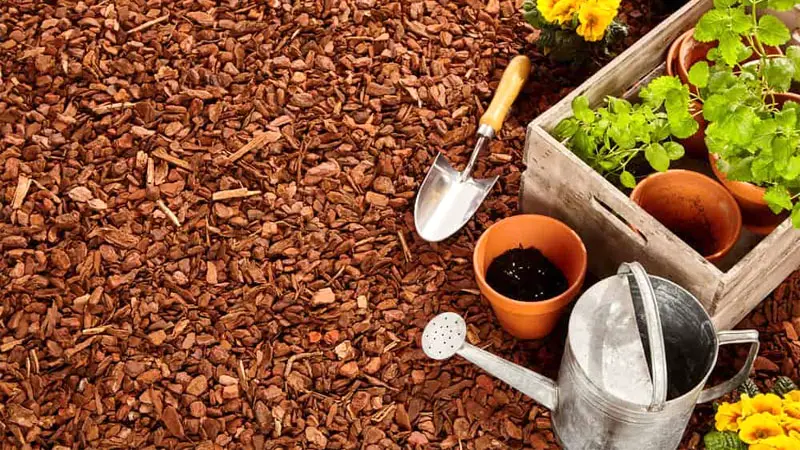Updated on January 3, 2022
Mulch is a traditional material for decorating flower beds, retaining moisture, and reducing soil erosion, but because it’s so common, you may be looking for something a bit different.
Fortunately, there are a good number of other materials you can choose from if you simply don’t want standard mulch. Check out these seven alternatives to mulch that will complement your garden wonderfully.
Alternatives to Mulch
1. Pea Gravel and Small Rocks
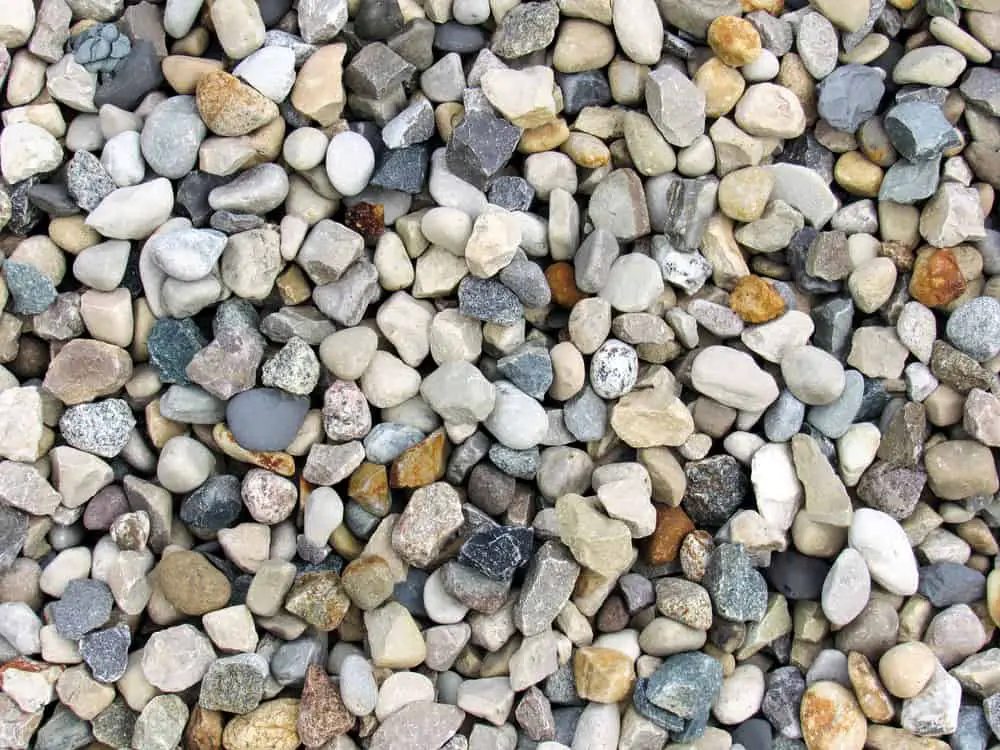
Pea gravel and small rocks are a great alternative for traditional mulch. Pea gravel is different from other gravel types because they are always round, small, and smooth. This design is much more aesthetically pleasing and more comfortable to walk on. If you choose rocks, try to get rocks that look like pea gravel.
Pea gravel can be found in many places, whether it be a pond or garden. They are naturally found by bodies of water, where the water has shaped the rocks and made them smooth. The pea gravel is then used on walkways, patios, driveways, playgrounds, or gardens.
Pea gravel is a great mulch alternative because it is functional and beautiful. The rocks prevent feeds from growing, but they also allow water to pass through the gaps. This functionality will reduce soil erosion, retain moisture, and suppress weed growth.
Additionally, pea gravel is very beautiful. You can get pea gravel in shades of white, gray, rust, ecru, or translucent. These colors are naturally quaint and will complement your garden perfectly.
The main downside of using pea gravel is that your garden will need to be closed off with some type of border (edging, curbing, etc.). The reason for this is that the pea gravel will roll or bounce outside of the garden when it is walked on or if there is hevay rainfall.
Pros
- Retains water
- Prevents erosion
- Prevents weed growth
- Beautiful
- Does not decompose
Cons
- Requires a closed-off garden area
Final Verdict
Pea gravel is a great mulch alternative if you are most concerned about functionality and beauty. This alternative will prevent erosion and weed growth while retaining moisture. If you choose this option, though, you will need to add a border to your garden.
2. Pumice Rock
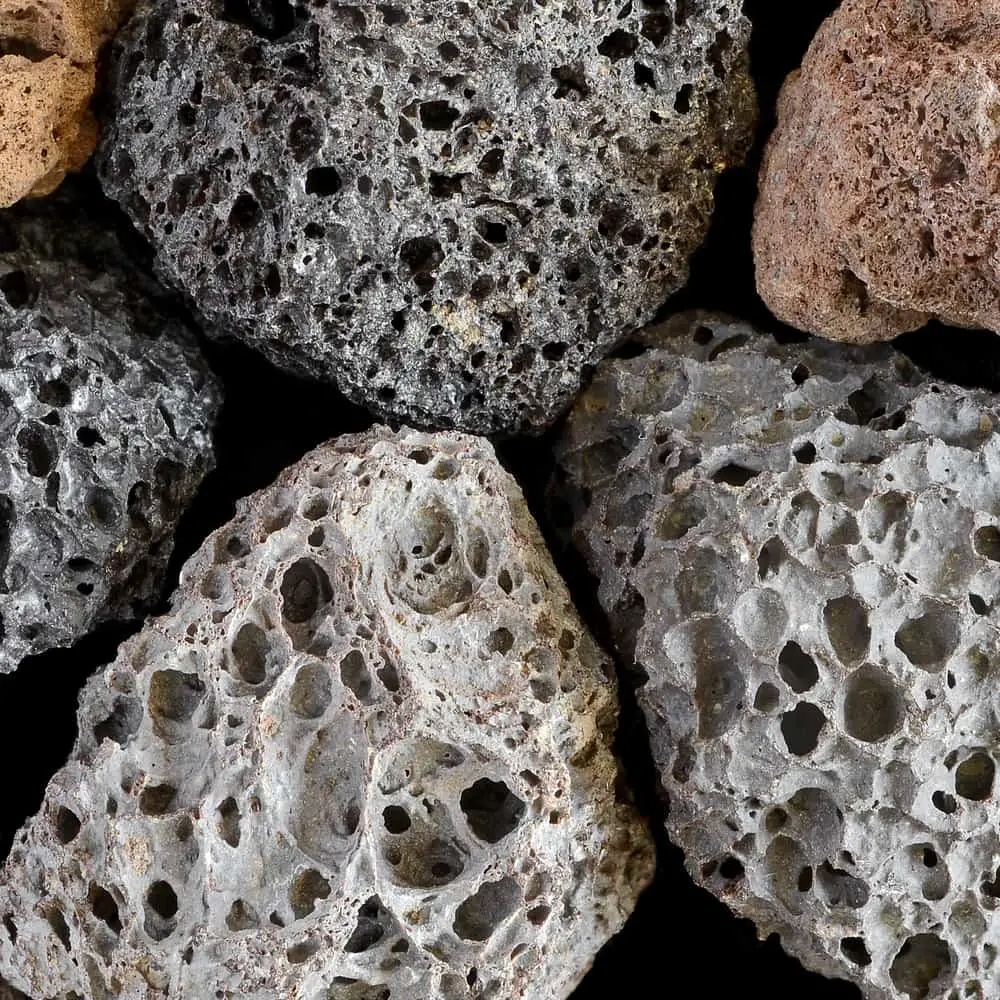
Pumice rock is another great substitute for mulch. The pumice rock, also called volcanic rock or lava rock, has small holes and a rougher exterior. This rock structure is extremely helpful for plant growth in your garden.
The pumice rocks, much like the pea gravel, will help your garden to retain moisture and prevent erosion and weed growth. These features will encourage the plant growth that you want while discouraging plant growth you don’t want.
At the same time, the porous structure of pumice rocks gives extra aeration to the soil. Aerating the soil is very important because it prevents fungi and mold from growing, as well as discourage insects from taking home in your bed. This feature will further promote the health of your garden.
The main downside to this alternative is that these rocks can get hot in excessive heat. This will not only make the rocks painful to walk on, but it could also damage sensitive plants.
Another downside of pumice rock is that they can be more expensive than other alternatives. Online, a 2-quart bag of pumice rocks can cost $15 to $20, which will cover about 115 cubic inches and is cheaper than some pumice rocks.
Pros
- Prevents erosion
- Prevents weed growth
- Aerates the soil
- Rustic color
- Resistant to weather and breakage
Cons
- Can get hot
- Painful to walk on bare-footed
- More expensive than other options
Final Verdict
Pumice rocks are a great alternative to mulch. These rocks will prevent erosion, prevent weed growth, and aerate the soil. They are also a rustic color that is very beautiful in any garden. You would not want to plant sensitive plants with these rocks, though, because the rocks can get hot and damage the plants.
3. Rubber Mulch
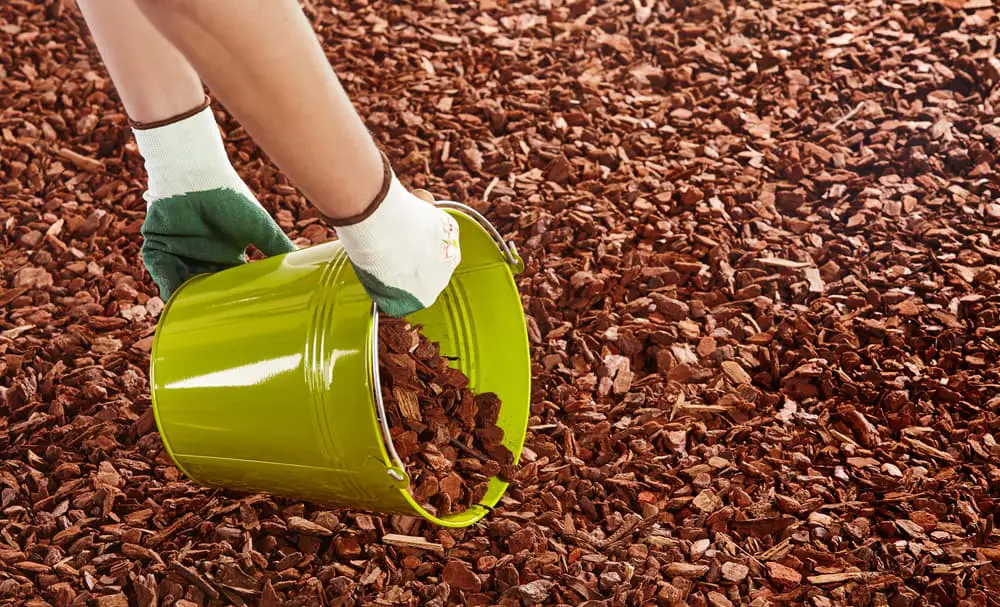
If you are seeking a mulch alternative because of its breakdown and decomposition, you may want to consider rubber mulch. Rubber mulch has the same appearance as regular mulch, but it does not decompose in the same way since it is made from recycled or ground-up tires.
Many playgrounds, sporting fields, and large landscapes use this alternative, but it is perfect for small gardens as well. The reason for this is that it is extremely durable. In fact, this alternative easily has the longest life.
One great benefit of rubber mulch is that it keeps the soil moist and insulated. The moisture-retaining and insulation properties of rubber mulch will help your garden by ensuring that the roots are properly watered and kept warm.
Another benefit of rubber mulch is that it repels insects like ants and termites. This feature will help protect your plants by discouraging insects from taking up home and eating your beautiful garden.
Rubber mulch has some negatives, though. Most notably, some rubber mulch may be toxic and harm soil, algae, plankton, snails, and fish. More so, rubber mulch is flammable, which is extremely dangerous if you live in areas prone to wildfires.
Pros
- Durable
- Insulates soil
- Retains moisture
- Repels insects
Cons
- Possibly toxic
- Harmful to the environment
- Can be expensive
Final Verdict
Rubber mulch is a great alternative to mulch if you do not live in fire-prone or wildlife-filled areas. It will retain moisture, insulate the ground, and repel insects for a long time. If you live in hot areas or near a lot of wildlife, it is not recommended since it could be extremely dangerous and toxic.
4. Bark or Wood Chips
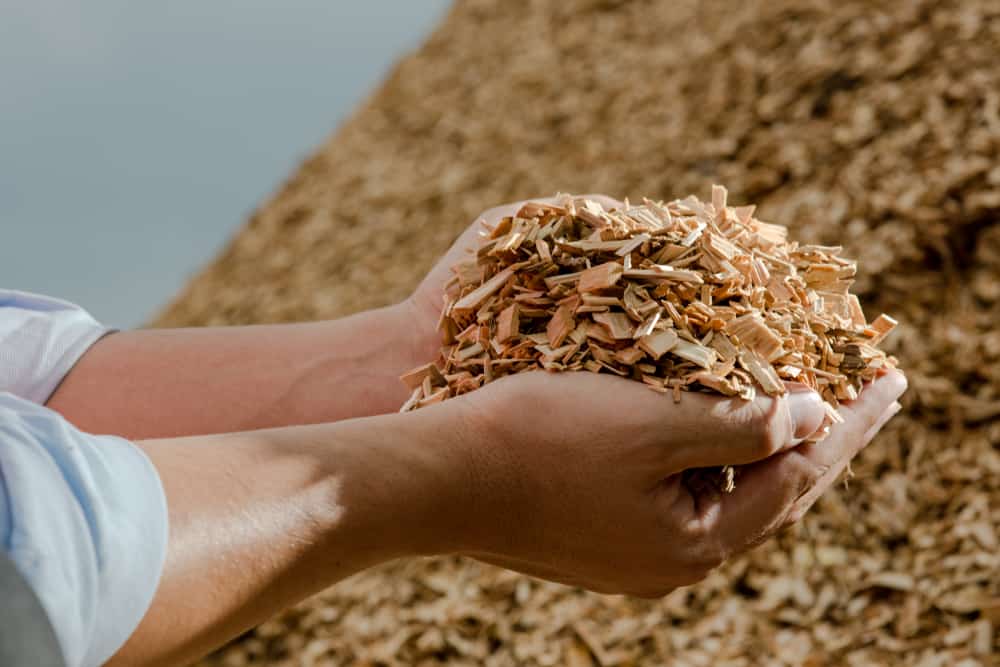
Bark and wood chips are another efficient and stunning alternative to traditional mulch. This material is readily available and is used frequently around flower beds, small bushes, and shrubs. Although there are many options to choose from, cedar wood chips are the most popular.
The best part of using bark and wood chips is that they provide nutrients to the soil as they decay. These nutrients will nourish the ground and ensure that your plants get all the nutrients they need to grow.
Another great aspect of using a bark and wood chip alternative is that they discourage insects from making your garden their home due to their strong scent. This will help ensure that your plants don’t turn into a buffet for critters.
Bark and wood chips will also look beautiful in your garden. Since this alternative is very natural-looking, it will look at home next to any plant. Additionally, the brown colorations will allow the greens, pinks, or yellows of your flowers to really stand out.
The main downside of using bark and wood chips is that they decay over time. While this decay provides wonderful nutrients to the ground, it will require you to buy more wood chips and reinstall them over your garden area.
Pros
- Readily available
- Nourish the soil
- Repels insects
- Beautiful
Cons
- Decays
Final Verdict
You can replace your traditional mulch with bark and wood chips. This alternative option will nourish the soil, repel insects, and look wonderful in any garden. If you do not want to routinely buy more wood chips and reinstall them, though, this option is not for you.
5. Leaves and Pine Needles
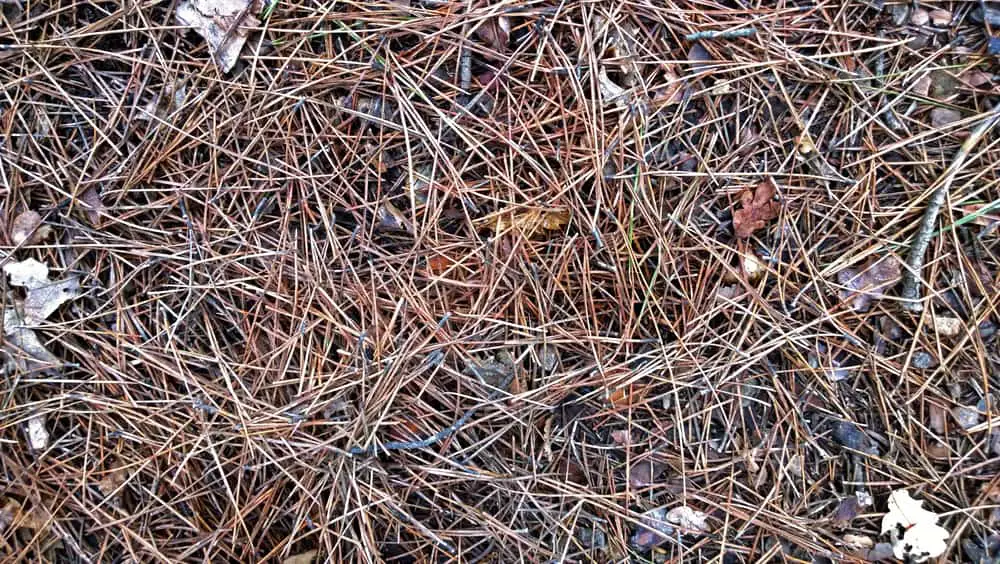
If you live in a very wooded area, then you might be able to find a mulch alternative in your own backyard. Leaves and pine needles can be a great mulch alternative if you are willing to put in the work associated with this alternative.
You can either buy bags of pine needle mulch or use your own fallen leaves and pine needle. If you are opting for your own leaves, you need to rake the fallen leaves, allow them to dry, and then redistribute them over the desired landscape. Make sure they’re dry to reduce bacteria growth and pests.
Using leaves and pine needles in place of mulch is a great choice because they nourish the ground. Like the bark and wood chips, the leaves and pine needles will add nutrients to the soil as they decompose. This feature will ensure that you have healthy soil.
Additionally, leaves and pine needles have a rustic and beautiful look. Since natural gardens are showered with fallen leaves and pine needles, using this alternative will make your garden look more rustic and natural. This alternative especially works with roses and chrysanthemums.
The main downside of using leaves and pine needles as a mulch alternative is that they decay very quickly. They even decay faster than bark and wood chips, which means you will have to redistribute leaves and pine needles more frequently.
Pros
- Readily available
- Nourish the soil
- Beautiful
- Inexpensive
Cons
- Decays quickly
Final Verdict
Using leaves and pine needles in place of mulch is a great option if you want a natural and rustic looking garden. This alternative will nourish the soil and ensure that your plants are happy and healthy. If you do not want to redistribute new leaves and pine needles frequently, though, you should not choose this option.
6. Compost

If you are concerned about the environment, a compost option may be the best mulch alternative for you. This option is easily the most environmentally friendly since it nourishes the ground, eliminates waste, and is not toxic.
Compost is organic material that is gathered from food scraps and yard waste. These scraps are then added to soil in order to help the plants to grow. Though composting takes a lot of time and effort, the results are extraordinary and great for the planet. You can learn more about composting here.
The main benefit of using compost in place of mulch is that it is great for the soil. Since compost is made from organic food scraps, the compost is full of vitamins and minerals that will go into the soil and encourage the healthiest plants possible.
Another benefit of using compost is that it is very affordable. It does not require you to buy new materials. Instead, you simply use the food that you have leftover. This fact will ensure that you use every bit of our food and get your true money’s worth.
The main downside of composting is that it takes a lot of extra effort. Instead of getting the materials and putting them in the garden once a year, you will have to replace the compost on a regular basis. More so, you will have to redistribute the materials, which some find gross.
Pros
- Environmentally-friendly
- Nourishes the soil
- Stretches your dollar
Cons
- Decays quickly
- Will require you to redistribute compost regularly
- Can smell bad
Final Verdict
If you are not afraid to put in some extra work and get your hands dirty, compost may be an amazing alternative to mulch. The compost will nourish your soil and stretch your dollar. Better yet, this option is extremely environmentally-friendly.
Read Also: 5 Underground Sprinkler Alternatives
7. Newspaper or Cardboard
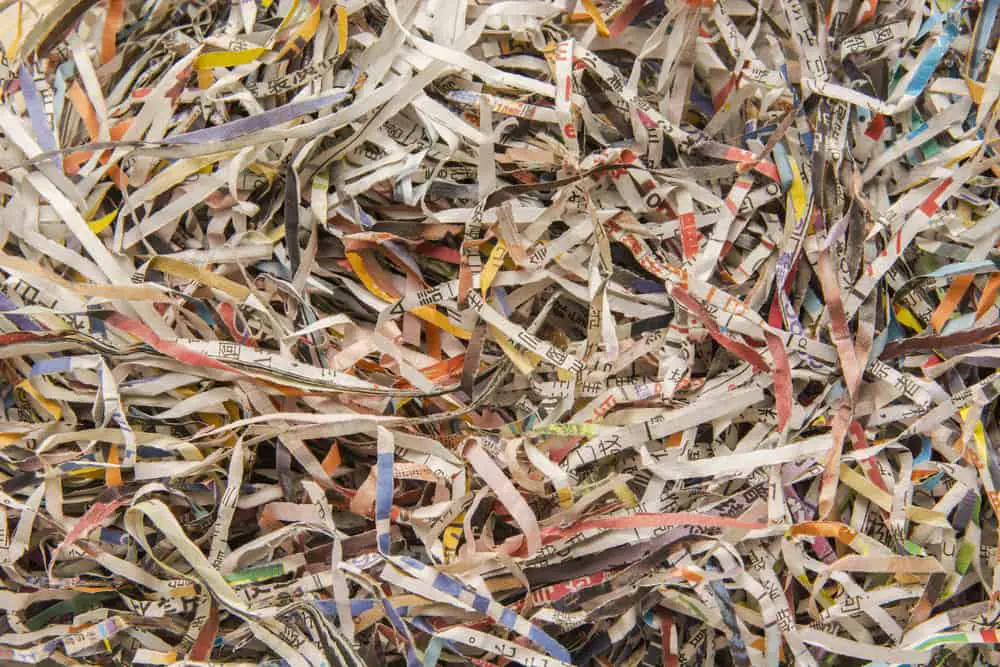
Another eco-friendly alternative to mulch is newspaper or cardboard. Though some people may think that the ink on these products is dangerous, ink does not contain lead anymore, so the ink will not be toxic to the ground. You should avoid using colored or heavy paper, though, because they contain wax.
One reason why this option stands out is that it is extremely affordable. All you will need is newspaper and a paper shredder if you plan to shred your own newspaper. These things are very affordable, which is great for those on a tight budget.
Newspaper and cardboard are also great as mulch because they retain moisture and regulate soil temperatures. These features will nourish the plants and ensure that their roots and soil have the proper moisture and temperature.
More so, newspaper will keep weeds at bay. This feature will ensure that your plants are not overshadowed by competing weeds.
The main downside of using newspaper and cardboard is that it is not an attractive alternative. Unlike the other options, the newspaper will not look natural against the flowers and bushes.
Pros
- Environmentally-friendly
- Affordable
- Retains moisture
- Regulates soil temperature
- Prevents weed growth
Cons
- Unattractive
- Certain papers can be toxic
Final Verdict
Newspaper and cardboard are great alternatives to mulch so long as you do not care about the appearance. They will retain moisture, regulate soil temperature, and prevent weed growth, all while being affordable and environmentally-friendly.

